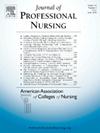Paradoxical effect of flipped classroom on nursing students' learning ability and satisfaction in a fundamental of nursing clinical course: A quasi-experimental study
IF 2.9
3区 医学
Q1 NURSING
引用次数: 0
Abstract
Background
The “Fundamentals of Nursing” course is crucial for equipping novice undergraduate nursing students with essential skills for their professional practice. However, a gap exists between nursing education and clinical readiness—a challenge exacerbated by the COVID-19 pandemic and issues like absenteeism in clinical sessions. The flipped classroom has been proposed as an innovative strategy to bridge this gap, offering students opportunities for self-paced learning before class and enabling more active, hands-on practice during lab sessions.
Objectives
This study aimed to evaluate the effects of the flipped classroom approach on undergraduate nursing students' knowledge retention, skill performance, self-directed learning, collaborative learning, work engagement, learning ability, and satisfaction in a Fundamentals of Nursing clinical course.
Design
A non-equivalent quasi-experimental design was used to compare the flipped classroom method against traditional demonstration-based instruction within a clinical skills lab setting.
Participants
The study included 100 nursing students enrolled in the “Fundamentals of Nursing” theory and lab courses at Sultan Qaboos University, Muscat, Sultanate of Oman, during the fall and spring semesters of 2022.
Methods
The experimental group engaged with pre-recorded video lectures, infographics, and other educational materials before class, while the control group received conventional demonstration-based instruction. Data were collected through pre-quiz and post-quiz scores, skill evaluation checklists, and surveys assessing various learning outcomes.
Results
Although students in the flipped classroom group showed significantly higher pre-quiz scores, indicating better initial understanding, there was no significant difference in post-quiz scores, skill evaluation, or other measured learning outcomes compared to the control group. Unexpectedly, the flipped classroom approach had a detrimental effect on self-reported learning ability and satisfaction. Specifically, the mean scores for learning ability were 35.57 (SD = 5.30) in the flipped classroom group versus 37.89 (SD = 5.26) in the control group, with t = 2.186, p = 0.031 (95 % CI 0.21 to 4.42). Satisfaction scores in the flipped classroom were 44.35 (SD = 11.07) compared to 48.43 (SD = 7.53) in the control group, t = 2.119, p = 0.037 (95 % CI 0.26 to 7.91).
Conclusions
The flipped classroom approach did not significantly enhance most of the educational outcomes compared to traditional demonstration-based teaching. While it offers benefits in terms of adaptability to remote scenarios, its impact on self-directed learning and student satisfaction requires careful consideration and further investigation. Future research should explore its application across multiple skills and longer durations to fully ascertain its effectiveness.
翻转课堂对护理临床基础课程护生学习能力和满意度的矛盾效应:一项准实验研究
“护理基础”课程对于为护理本科生新手提供专业实践所需的基本技能至关重要。然而,护理教育与临床准备之间存在差距,COVID-19大流行和临床会议缺勤等问题加剧了这一挑战。翻转课堂被提出作为一种创新的策略来弥补这一差距,为学生提供课前自主学习的机会,并在实验室课程中进行更积极的实践。目的探讨翻转课堂教学对护理本科临床基础课程护生知识记忆、技能表现、自主学习、协作学习、工作投入、学习能力和满意度的影响。设计采用非等效准实验设计,在临床技能实验室环境中比较翻转课堂方法与传统的基于演示的教学。研究对象包括2022年秋季和春季学期在阿曼苏丹国马斯喀特苏丹卡布斯大学学习“护理基础”理论和实验课程的100名护理专业学生。方法实验组在课前使用预先录制好的视频讲座、信息图表等教学材料,对照组采用常规的以演示为基础的教学方法。数据通过测验前和测验后的分数、技能评估清单和评估各种学习成果的调查收集。结果:虽然翻转课堂组的学生在测验前得分明显更高,表明更好的初步理解,但与对照组相比,测验后得分、技能评估或其他可测量的学习成果没有显著差异。出乎意料的是,翻转课堂对自我报告的学习能力和满意度产生了不利影响。其中,翻转课堂组学生的平均学习能力得分为35.57 (SD = 5.30),对照组学生的平均学习能力得分为37.89 (SD = 5.26), t = 2.186, p = 0.031 (95% CI 0.21 ~ 4.42)。翻转课堂满意度评分为44.35 (SD = 11.07),对照组为48.43 (SD = 7.53), t = 2.119, p = 0.037 (95% CI 0.26 ~ 7.91)。结论与传统的以示范为基础的教学相比,翻转课堂教学在大多数方面并没有显著提高教学效果。虽然它在适应远程场景方面提供了好处,但它对自主学习和学生满意度的影响需要仔细考虑和进一步调查。未来的研究应探索其跨多种技能和更长时间的应用,以充分确定其有效性。
本文章由计算机程序翻译,如有差异,请以英文原文为准。
求助全文
约1分钟内获得全文
求助全文
来源期刊
CiteScore
4.80
自引率
8.00%
发文量
153
审稿时长
52 days
期刊介绍:
The Journal will accept articles that focus on baccalaureate and higher degree nursing education, educational research, policy related to education, and education and practice partnerships. Reports of original work, research, reviews, insightful descriptions, and policy papers focusing on baccalaureate and graduate nursing education will be published.

 求助内容:
求助内容: 应助结果提醒方式:
应助结果提醒方式:


